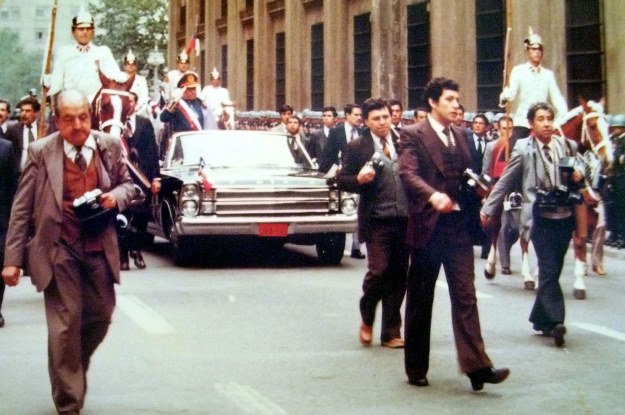When the Latin American Studies Association (LASA) was founded in 1966, there was a clear need for dialogue and debate over the direction the region was headed. Military dictatorships were in power across the Americas, from Honduras to Argentina. Democracy, far from the rule, was the exception.
Just 50 years after a future of alternative political and economic models in the region seemed like a real possibility, democracy prevails. Long-standing authoritarian-minded parties such as Mexico’s Institutional Revolutionary Party (PRI) have loosened their grip on political power as the price of their survival. Bureaucratic-authoritarian regimes that arose from military coups in the Southern Cone have disappeared. Throughout Latin America, election cycles have gone almost uninterrupted over the past twenty years – even in tormented Venezuela.
But the quality of that democracy – not just its breadth, but its depth – is still very much open to debate. The LASA 50th anniversary conference last month in New York offered a fitting venue for that discussion, and several participants took up the question.
One of those was Scott Mainwaring, a political science professor at the University of Notre Dame, who noted that the current, less favorable economic and international political context makes it particularly challenging for Latin American countries to solve threats to democracy.
Most Latin American governments have only marginally extended the benefits of citizenship to sectors of the population traditionally excluded from the circles of power. Many promises for greater political inclusion – for indigenous groups, Afro-Latinos and women – have gone unfulfilled. And Latin America remains among the most unequal regions in the world.
Citizens have grown impatient. The rise and fall of populist regimes demonstrate their unresolved grievances. Most recently, in Guatemala, a political outsider was elected to the presidency in a rejection of the country’s political establishment. But now in power, lacking both a strategic vision and the experience and political ability necessary to reach compromises and establish an agenda, President Jimmy Morales has become the target of criticism from several sectors of the population.
In many countries, populism has led to the collapse of political parties as the main platforms for the articulation of political interests, and parties are often reduced to ad-hoc electoral machines. Nowhere is this more evident than in Peru, where a party founded in 2014 to support President-elect Pedro Pablo Kuczynski was named “Peruanos Por el Kambio” after the initials of its candidate. Ironically for the daughter of the man whose auto-golpe led to the collapse of political parties in the country, it is Keiko Fujimori’s Popular Force (FP by its Spanish initials) that most resembles a coherent political party in Peru today.
Still, there is cause for optimism. Small countries such as Costa Rica and Uruguay continue to provide good examples of how democracy can not only endure but deepen in the region. And largely speaking, institutions inherited from the waves of transitions from authoritarianism in the 1980s and 1990s are holding up to the task of protecting democracy. Even suspended President Dilma Rousseff’s pending impeachment can be viewed as a positive in that it is part of a system of checks and balances that protects citizens from abuses of power by elected authorities, though most participants at the conference viewed her suspension as an abuse of Latin American legalism (with some even going so far as to qualify it as a “coup”).
Additional risks to the future of democracy in the region remain, including the problem of organized crime and its intricate links with the world of politics, threats to the press, and the end of the commodity boom that puts gains in poverty reduction at risk. However, investment in education will eventually improve the practice of democratic citizenship.
In short, the progress of Latin American democracies of today would have been inconceivable only decades ago. But work remains to consolidate and strengthen them, otherwise these democracies will remain relatively shallow.
–
Losson is institutional engagement manager at Americas Society and a PhD candidate in political science at The Graduate Center, CUNY.








